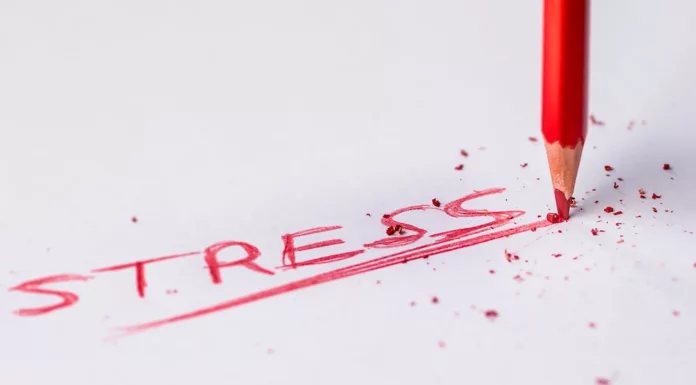There’s no shortage of stress in the world. No matter what you’re dealing with in your personal life, something’s always happening that’s a cause for concern. How can you feel more at peace and keep up with your responsibilities? Try these effective stress relief strategies to see what works best for you.
1. Create Specific To-Do Lists
You likely have a general to-do list that guides your daily life. As things pile up, you might get anxious about accomplishing everything by the end of the day. A more specific list with modern technology can eliminate that stress.
Ditch sticky notes and paper planners for modern apps. Resources like Apple’s Reminders app or Google’s Keep organize your responsibilities by importance and even set timed notifications. When the alert pops up on your smartphone, you’ll know it’s time to start your next task. You’ll feel more at ease knowing everything will get done because you’ve improved your time management skills with a helpful to-do app.
2. Make Your Workspace Feel Homey
Many people are working more challenging jobs or longer hours to afford the rising costs of living. It may add to your daily stress even if you love your job. Change the environment by adding things that make your workspace feel like home. This might be the most effective way to eliminate stress if most of your anxiety centers around your career.
You could add the decor in your favorite colors, pictures of your loved ones, or a bowl of your preferred candies. Remote workers can also diffuse stress-relieving essential oils or light a candle. Posters, a rug, plants, and a cozy cardigan also work for in-office or at-home workspaces. It all depends on what feels right.
3. Use New Money Management Strategies
Finances can be stressful even if you have a budget. Reflecting on how your financial life works or doesn’t work can effectively reduce stress in the modern age.
Many costs of living are rising, especially health care. You may want to save money for medical or mental health emergencies, but that might take longer than you’d like. Out-of-pocket costs have increased by 71% over 10 years, making families spend $6,015 on medical expenses annually.
Updated money management strategies are the best way to afford what you need. Open a high-yield savings account to make more money on monthly interest rates and use apps like GoodRx to reduce prescription drug costs.
A tax-advantaged account like an HSA can also be useful. Some employers even match contributions to HSA. Talk with your manager to double your savings without changing your budget. There’s always a way to put money aside for health expenses to reduce your stress.
4. Practice Deep Breathing
When you can’t remove stressful triggers, people, or events, you can still feel better with deep breathing techniques. People try these methods when learning how to eliminate stress because they’re free, immediate tools that anyone can use.
Take a deep breath by filling your diaphragm and your lungs. Hold your breath for at least five seconds before exhaling slowly. Repeating these two steps will slow your heart rate, which might race when you’re stressed, and cause more of an adrenaline rush.
You can also take this technique into the modern age by listening to breathing coaches. Many people upload podcast episodes and YouTube videos where they guide you through breathing exercises for free. Explore those resources when you have free time to see if expert resources are more effective when you’re highly anxious.
5. Eat a Healthier Diet
Today’s technology makes it easier to eat a healthy diet that supports your mental health. Your mind and body will handle stressful situations better if they get the nutrients they need to function at peak performance.
Try using apps to reshape your diet into a sustainable, healthy routine. You could download apps that schedule meal planning sessions, making your weekly grocery lists easier. You could also follow nutritionists on social media to gain tips about how food serves your body and ways to make healthy living easier. You’ll gain free advice that results in better health so you can thrive in any stressful period.
6. Get More Exercise
Stress can result in muscle tension and high levels of adrenaline. Exercise is a healthy way to reduce both symptoms. In previous decades, people joined gyms and drove into town when they needed to work out. Now you can do everything at home.
Explore exercise apps with guided videos to try new exercise routines like weight lifting, running or high-intensity interval training (HIIT) workouts. There are live-streamed classes online for anyone who prefers following a trainer.
Numerous video games also count as exercise. Push yourself with VR experiences like Beat Saber or other console games that make you exercise with dance or exercise challenges. Many of these modern options are fun and affordable. They’re also easy to fit into busy schedules, which might be the primary factor causing your stress.
7. Use Your PTO
When was the last time you took a day off of work? If your employer provides paid time off (PTO), you’ve earned your vacation hours by clocking in every day. Use those hours before they run out at the end of the year — it’s an excellent way to reduce the stress accumulated from your job.
Modern technology makes staycations just as relaxing as traveling to a vacation destination. Staying at home can be one of the most effective stress relief strategies, depending on how you use your time. Try a vacation rental app to find a cute getaway in your hometown.
You could also relax at home with the latest spa technologies. Red-light face masks for collagen production and high-frequency massage wands can do wonders if your stress has physical symptoms. Investing in modern technologies will result in long-term access to anxiety and stress relief. Consider what you’d enjoy most to gain tools that help the most.
8. Give Yourself More Professional Freedom
Previous generations believed that once you started working full-time, you stayed in that career until you retired. Although that might have worked out for some people, it could cause more stress. The modern world has more job opportunities and career fields. There’s more freedom to explore your professional interests, but you might not give yourself the space to explore that.
Reduce the stress that comes from your professional life by exploring possibilities. If you got a degree in a field that doesn’t make you happy, research how your skills could support you in a different type of job.
People can also enroll in college courses at any age. You can get a new degree or certificate to start a career that makes you happy.
Many employment opportunities don’t require degrees. If you crave more flexibility and freedom, think about becoming a freelancer or influencer. You might feel less stress by crafting a modern career. Jobs like travel blogging and video content creation didn’t exist twenty years ago but offer financial success now. All you need to do is research modern careers and jobs to find something that makes you happier.
Try Effective Stress Relief Strategies
Now that you know how to eliminate stress, try these tips to see what makes you feel more at ease. Stress comes from numerous areas of life. You may need to make more than one change to improve your mental health. Have fun experimenting and you’ll enjoy the path to your stress-free life.


